Alice Marie Johnson and Kim Kardashian reflect on their unlikely partnership

LOS ANGELES – Kim Kardashian and Alice Marie Johnson sit on a couch in a toney, sun-drenched Beverly Hills restaurant. It’s a warm June evening and a well-dressed crowd of criminal justice advocates take their seats, their murmurs broken up by the rattling of cocktail shakers and the clicks of cameras. Kim and Alice, a seemingly mismatched pair now forever linked, take the stage to tell their incredible story.
They’re like family at this point, but a little more than five years ago, a friendship – and celebration – like this seemed impossible. Kim and Alice were worlds apart: One a television star and fashion icon, the other sitting in a federal prison cell serving a life sentence. They’d soon forge a partnership that shines a light on problems in the criminal justice system that tear families apart and make communities less safe – as well as ways to solve them.
Their tale starts decades ago in Memphis, Tennessee, when Alice found herself at a low point in her life.
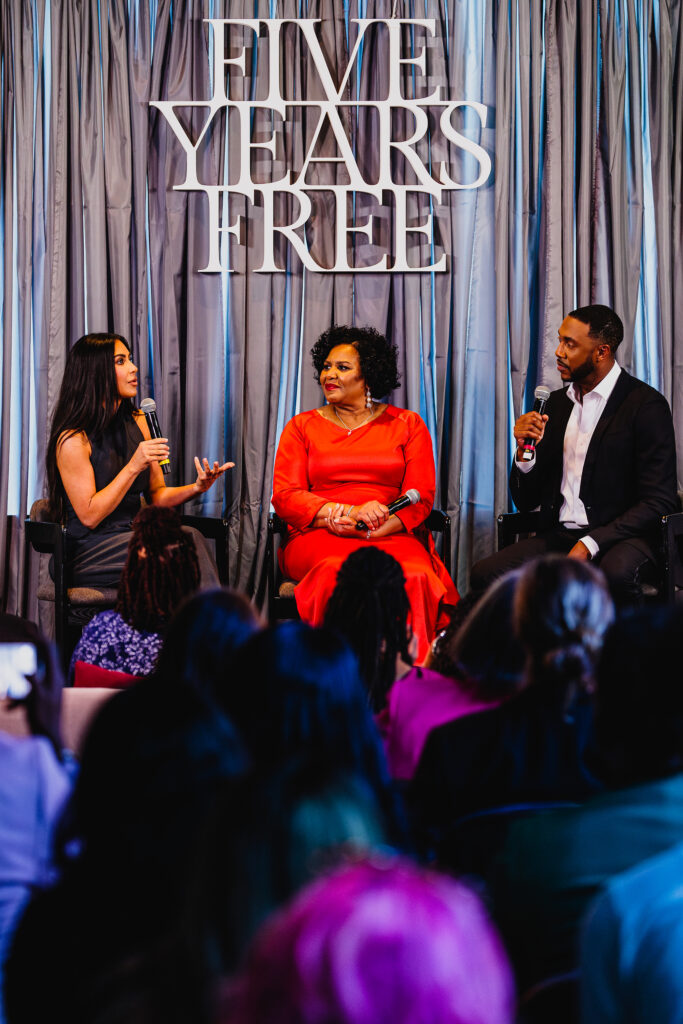
Challenges, desperation, then a devastating sentence
Alice had suffered a string of major life setbacks. A divorce left her a single mother of five. Her house was foreclosed. She lost her job. Her youngest son died in a traffic accident. All in a few years.
The stress, grief, and pressure to provide for her family became overwhelming. To make ends meet, Alice began passing coded messages between drug dealers. A stranger would call and give her a code, then she would call another stranger’s number and repeat what she’d been told and hang up.
Alice was eventually arrested and offered a plea deal of three to five years. After she initially declined, prosecutors added new charges and sought the maximum possible punishment. When she was convicted in 1996, a judge sentenced her to life in prison without the possibility of parole.
For a first-time, non-violent offense, Alice received the same sentence as many convicted murderers. Her life as a free woman ended. She was shipped to a facility 1,500 miles away from her family, despite other prisons being closer to her home.
Behind bars, however, Alice flourished.

Alice inspires and builds community in prison
She started creating plays, teaching, and mentoring other women prisoners. She became an ordained minister, earned various certifications, and developed a reputation as a community builder among women in prison and prison guards alike.
She was making the most out of an awful situation by helping others.
Cheryl Ward, who met Alice in prison, describes her as “a mighty rushing wind” who helped others come out of their shells.
“She never saw you as an inmate, she saw you as a human being,” says Casiana Foghis, another woman Alice influenced in prison. “She never looked at an officer as an officer, she looked at him as a human being.”
All the while, Alice missed out on major family events. Her children grew into adulthood, grandchildren were born, and she couldn’t be by her parents as they died. Though an inspiration to many women behind bars, her service hadn’t freed her.
Fast forward to 2017, when a video of Alice pops up on Kim’s feed.
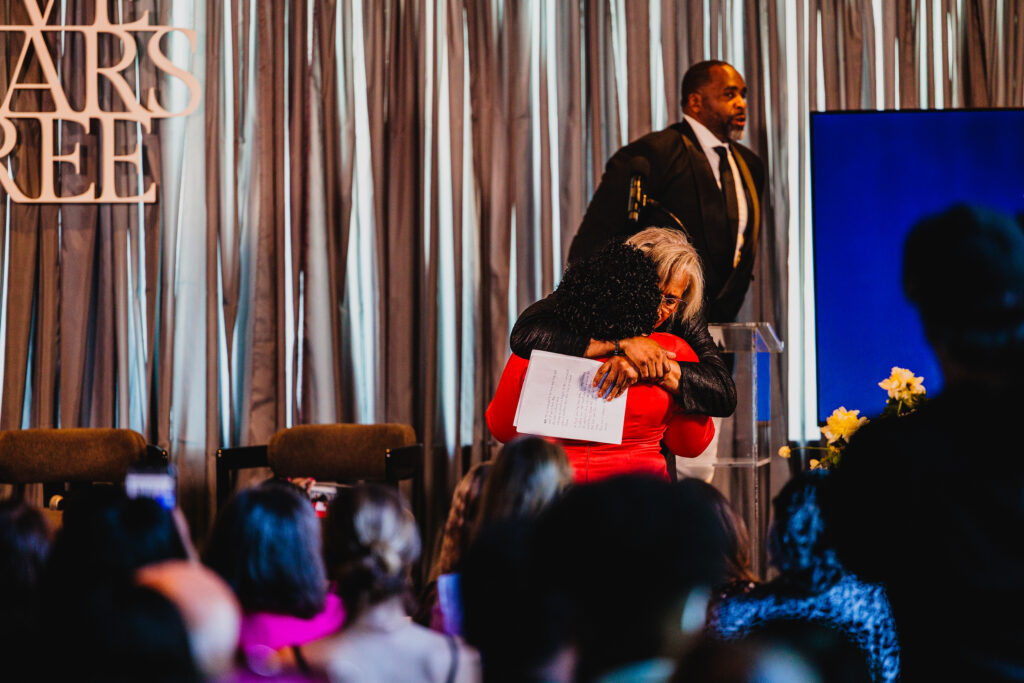
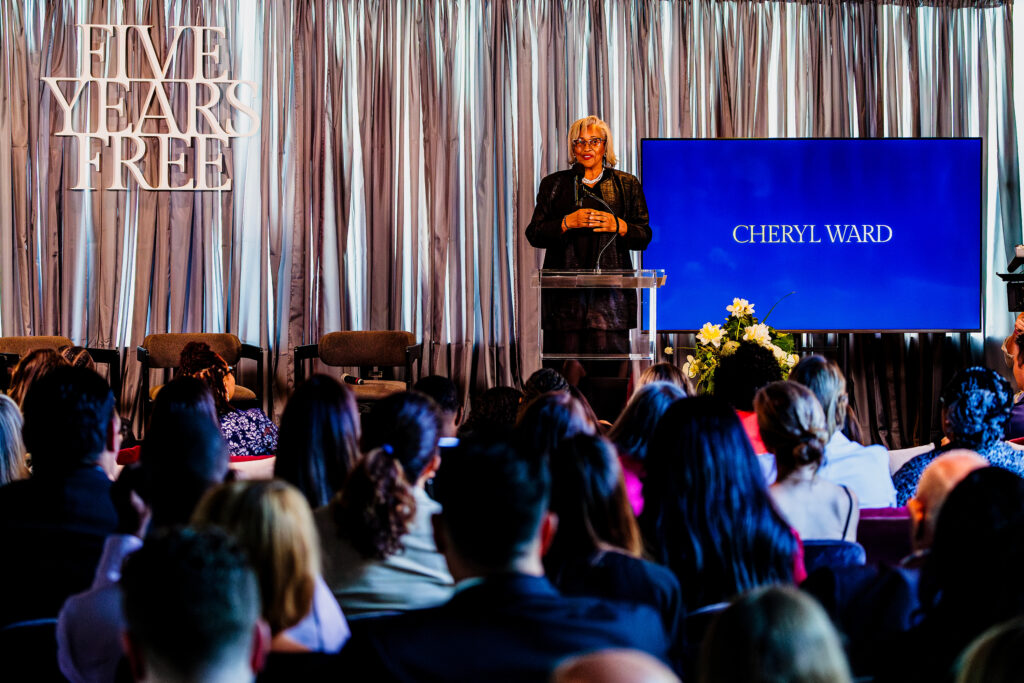
A tweet from Kim Kardashian changed Alice’s life
Good timing, luck, kismet, serendipity. Whatever it was, Kim picked up her phone at the right time to see Alice’s story. It immediately struck her. So she took action.Kim’s tweet to millions of followers on Oct. 25, 2017, would be the nudge Alice needed.
Kim’s tweet about Alice was the “spark” Alice said she needed.
In the tweet, a video from the news site Mic shows Alice speaking over a prison phone from Aliceville Federal Correctional Institution in Alabama. Donning a drab gray prison uniform, she told the story of what led to her sentence, the family moments she missed behind bars, her mentorship of other women, and her frustration with the clemency process despite glowing conduct.
Kim connected with her lawyer and embarked on the near-impossible task of freeing Alice.
In prison, Kim’s advocacy caught Alice off-guard: “I didn’t even know who Kim Kardashian was.”
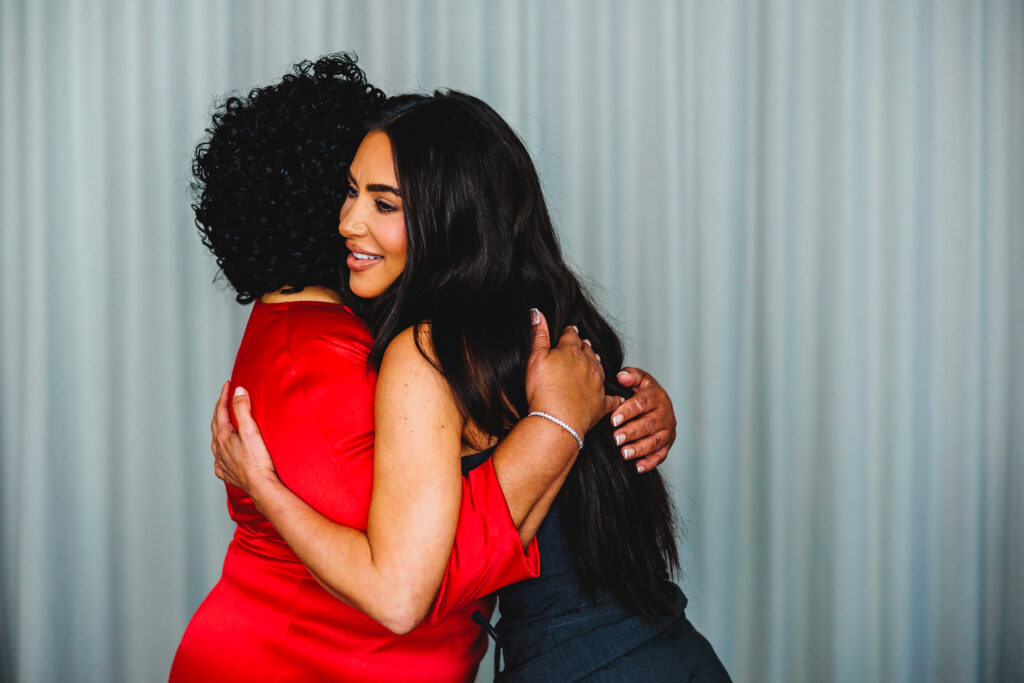
Alice gains freedom, then dedicates her life to helping others like her
Kim began publicly calling for Alice’s release and, only months after learning of Alice’s story, she visited the White House, where she advocated for Alice to be granted clemency, which was eventually granted.
On June 6, 2018 – after 21 years behind bars – Alice walked out of prison.
In Los Angeles, that emotional scene from exactly five years ago – of Alice running across a street, arms wide open, elated and smiling, finally embracing her family – leaves the room quiet.
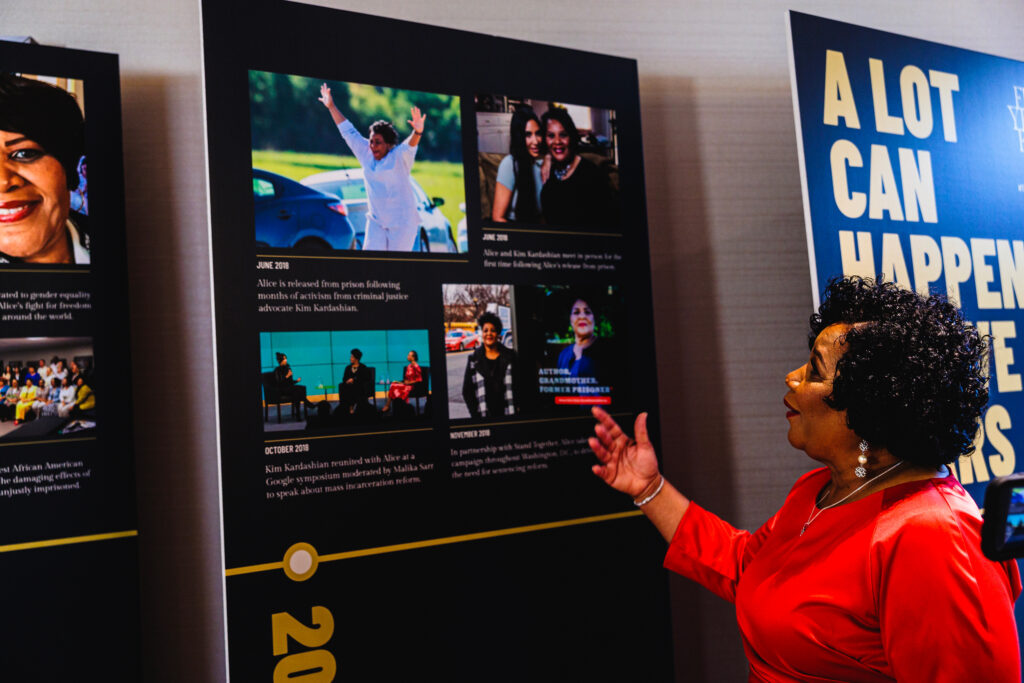
Five years.
In that time, Alice has done so much. She founded Taking Action for Good, or TAG, an organization fighting to bring deserving incarcerated people home and for criminal justice reforms that make communities safer.
Her story opened people’s eyes to the need for reform, including key lawmakers in Washington. In 2018, Alice’s story helped inspire passage of the First Step Act, a historic law that granted second chances to more deserving people like Alice, reformed draconian sentencing laws, and expanded access to reentry programs proven to help people successfully transition back into society.
She also wrote a book, gave a talk at Google (with Kim), and helped other deserving incarcerated people get their own second chances – not to mention countless public appearances where she advocated for smarter criminal justice policies.
Stand Together, which supported her early release from prison, also began partnering with her to advance criminal justice reforms that respect human dignity and strengthen public safety.
“Alice’s story encapsulates what we believe can be achieved with a better criminal justice system,” says Evan Feinberg, executive director at Stand Together Foundation, before the star-studded crowd, which included actor Terry Crews. “By treating people with dignity and respect, prioritizing rehabilitation, and providing second chances to those who deserve them, we can both improve public safety and enrich communities.”
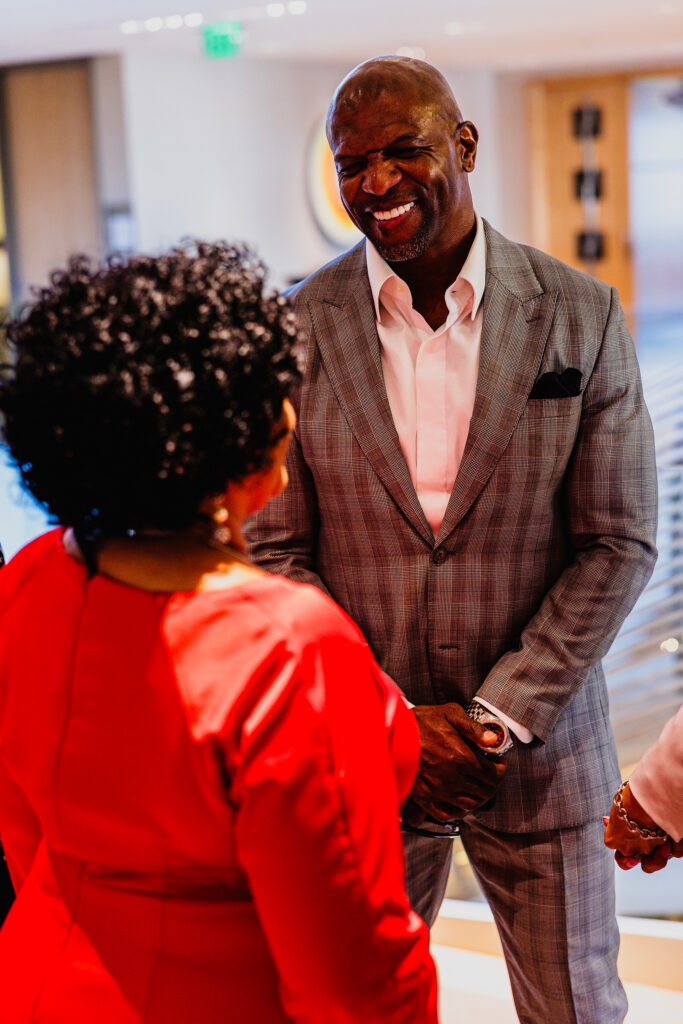
Alice honors Kim
But on this night, Alice reunited with Kim not only to celebrate five years of freedom, but to present her with TAG’s inaugural Champion of Justice Award for her work in criminal justice advocacy. After helping Alice gain her freedom, Kim did not stop her advocacy work. She made a documentary series on people who deserve a second chance, a podcast, and has visited prisons.
“Alice always thanks me, but I always thank her because through this process I feel like she’s really given me purpose, and I think to find your purpose in life and to find what you can do for other people is such a powerful thing,” says Kim, who was inspired to go to law school after fighting for Alice’s freedom.
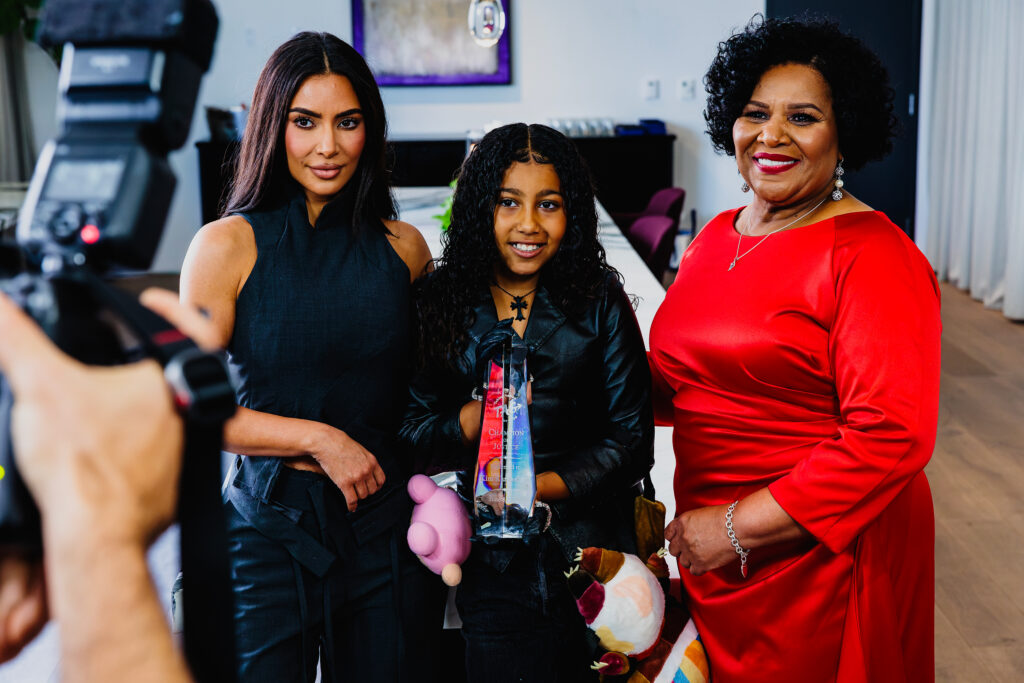
Evidence of Alice’s impact fills the room. Cheryl and Casiana, the two women Alice met in prison, are thriving. Cheryl works in the prison reentry space. Casiana is actively engaged in community service and established a successful real estate development consulting firm.
Antong Lucky, a former gang leader who now dedicates his life to ending violence in urban communities, praises her work; as does Michael “Harry O.” Harris, co-founder of Death Row Records and a formerly incarcerated person who had his sentence commuted thanks to Alice.
“Her whole heart was and is devoted to helping to free people not just from external prison,” Ward says, “but from the prison they carry around in their own heart.”
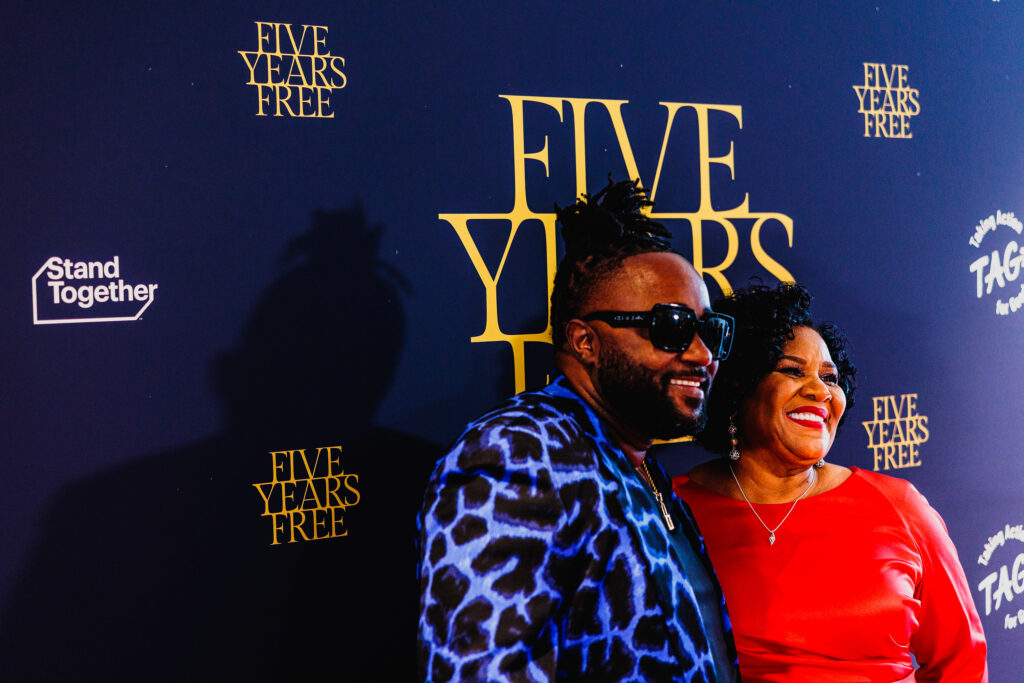
What’s next? Fighting for the Alices out there
By now, Alice and Kim’s works are intertwined, and their mutual admiration shines as the sun sets on Beverly Hills.
Alice commends Kim’s courage to fight for her freedom calling her a “war angel” – and for putting her brand on the line for her.
“Kim just kept her head right on up, kept on fighting, kept on doing what she was doing because it really took someone who did not think that they couldn’t do it,” Alice says as the night comes to an end.
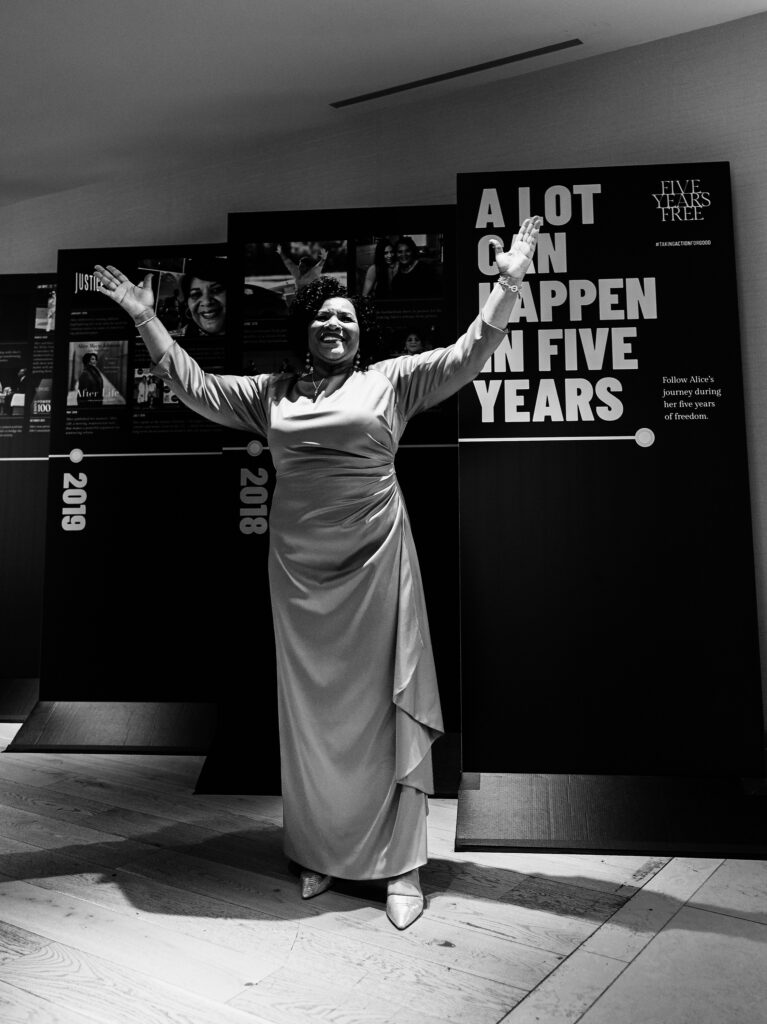
Kim says there are more Alices out there. She hopes to tell more of those stories.
So does Alice.
“As we’re living in a time when people getting second chances are being demonized, it is so important that I use my platform of uplifting those who are making good use of their second chances, and that is what I’m mission-driven in the present time to do, is to help humanize the people who have made very good choices, have made good use of their second chances, because if I don’t use my platform, then who?”
Learn more about Stand Together’s criminal justice reform efforts.

